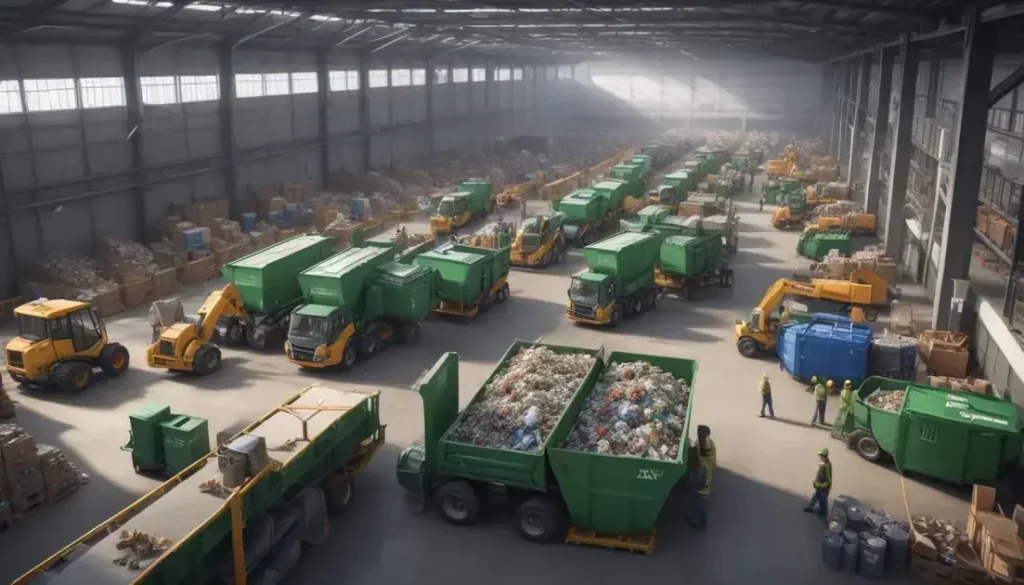Recycled textiles are materials derived from repurposed fabrics that significantly reduce waste and resource consumption, making them essential for sustainable practices in the Canadian apparel industry.
Recycled materials are becoming essential in sustainable apparel manufacturing. This recent partnership between lululemon and Samsara Eco is a game changer for Canadian businesses, driving the circular economy forward.
Impact of the lululemon and Samsara Eco partnership
A burgeoning trend in the apparel industry is the partnership between lululemon and Samsara Eco, focused on enhancing the use of recycled materials in their products. This collaboration aims to minimize waste and promote sustainability within the Canadian market.
The significance of this partnership extends beyond just eco-friendly practices. It reflects a growing demand among consumers for transparency and responsibility in production. Canadian businesses are increasingly recognizing the need to adapt to evolving market expectations regarding sustainability.
Recycling and its Benefits: Utilizing recycled materials can significantly reduce energy consumption and resource depletion. The production process for recycled fabrics often uses less water and generates fewer greenhouse gas emissions. By embracing these materials, lululemon positions itself as a leader in sustainable fashion, influencing other Canadian brands to follow suit.
Moreover, this initiative aligns with Canada’s commitment to environmental preservation. As regulatory pressures intensify, companies must stay ahead of compliance requirements. This partnership sets a benchmark for Canadian businesses by demonstrating that sustainable practices can be both profitable and responsible.
The significance of recycled textiles in Canada
The significance of recycled textiles in Canada is rapidly gaining attention as the demand for sustainable practices escalates. These materials not only contribute to reducing environmental impact but also help Canadian businesses align with consumer expectations for eco-friendliness.
Environmental Benefits: The use of recycled textiles minimizes waste and decreases the need for virgin materials. This process conserves resources, such as water and energy, which are typically consumed in traditional textile manufacturing. By shifting towards recycled options, companies like lululemon are setting a benchmark for sustainability in the apparel industry.
Moreover, recycled textiles exemplify a circular economy, where waste is repurposed into valuable new products. This approach not only lessens landfill contributions but also enhances the overall life cycle of materials used in garments. Canadian manufacturers are thus incentivized to innovate and explore new methods of integrating sustainability into their supply chains.
Market Opportunities: The growing focus on recycled materials presents significant opportunities for manufacturers and designers. Brands that invest in sustainable practices will likely attract a more conscientious consumer base, enhancing their competitive edge. As regulatory pressures increase, adapting to these changes will be crucial for future business growth within the Canadian market.
In conclusion, the significance of recycled textiles in Canada is clear. These materials not only reduce waste but also help companies meet consumer expectations for sustainability. As businesses like lululemon lead the way, their commitment to eco-friendly practices sets a positive example for others.
The shift towards recycled textiles opens up new market opportunities, encouraging innovation and collaboration within the industry. By embracing a circular economy, companies can enhance their reputation while contributing to a healthier environment.
Ultimately, adopting sustainable practices is not just beneficial for the planet; it also positions Canadian businesses for future success in a competitive global market. Now is the time to invest in recycled materials and lead the charge towards a sustainable future.
Frequently Asked Questions
What are recycled textiles and why are they important?
Recycled textiles are materials made from reprocessed fabrics and fibers. They are important because they reduce waste and resource consumption in the textile industry.
How does lululemon’s partnership with Samsara Eco benefit the environment?
The partnership focuses on using recycled materials, which decreases waste, conserves resources, and promotes sustainable manufacturing practices.
What impact does using recycled textiles have on Canadian businesses?
Using recycled textiles can enhance a company’s reputation, meet consumer demands for sustainability, and ensure compliance with increasing environmental regulations.
What advantages do consumers gain from recycled textile products?
Consumers enjoy eco-friendly options that contribute to sustainability, often with the same quality and style as traditional products.
How does the circular economy relate to recycled textiles?
The circular economy emphasizes repurposing materials, allowing for recycling and reducing waste, which is integral to the concept of using recycled textiles.
Why is sustainability becoming crucial for businesses in Canada?
Sustainability is vital as consumers prioritize eco-friendly practices and regulatory pressures increase, compelling businesses to adopt responsible practices to remain competitive.


